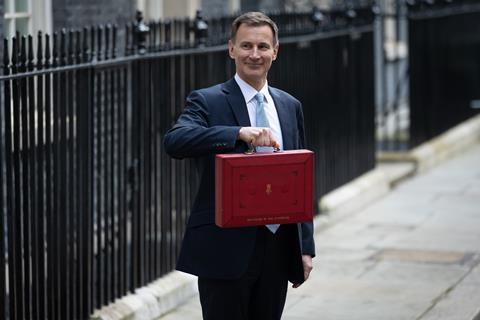From Lee Anderson’s uncharitable comments about the Mayor of London to the Rwanda policy, economic lack can result in a meanness of spirit, says George Pitcher. But Christ offers a different way

Liam Byrne, the outgoing Labour chief secretary to Gordon Brown’s failed government, notoriously left a note for his successor at his desk in 2010 saying simply: “I’m afraid there is no money.”
It was meant to be a joke. But naturally it was flourished by the incoming leader of the Conservative-Lib Dem coalition, David Cameron, as the callous attitude of a Labour government to the spending of taxpayers’ money.
At the forthcoming general election, which will most probably happen between Easter and Advent, there will be even less than no money left, as the UK struggles in the wake of a cost-of-living crisis.
We’ve not just become unkind. We’ve allowed our collective spirit to die
A feel-good domestic economy is way beyond the control of this current government, the damage having been done by events that it cannot now alter. Post-Brexit, post-Covid and post-Ukraine, there is simply no money left to throw at the electorate, as the Chancellor’s recent budget demonstrated.
Financial generosity
One suspects that the Conservative Party would love to be generous with our money. Not just as a pre-election bribe, but because it’s always prided itself on being the party of economic competence. Nonetheless, it cannot help but seem mean.
This, incidentally, presents Keir Starmer’s Labour Party with a problem too. If he, as expected, becomes prime minister, there will not suddenly be some broad-lit, economic uplands. He will have to be mean, too.
Politicians like to be generous. It makes them look good and the electorate feel good. No one is likely to look or feel good for some time. This is not a generous era.
Generosity of spirit
But the trouble with money, when there is none of it left, is that we may start to think that it is the only way to be generous. Essentially, we may believe that the only currency of generosity is material.
It’s difficult to see how governments can deal in anything beyond material comforts. It is, at its most fundamental, the job of good government to keep its people safe and, so far as is possible, as comfortable as they can be. But lack of money can generate a meanness of spirit; pinched pockets can spread to pinched faces.
A generosity of spirit is unlikely, of itself, to turn around opinion polls for the Conservatives. But to lose that generosity of spirit, as a consequence of having no cash with which to be materially generous, is to compound the problem. And that seems to be what has happened lately.
Failure of spirit
Former deputy party chairman Lee Anderson’s defenestration from the Tory party for claiming that the Mayor of London had lost control to Islamist extremists was essentially a failure of spirit, rather than anything to do with economic or even political management.
One might argue that the entire Rwanda policy, aimed at stopping small-boat immigration, is a failure of generosity of spirit, because it commodifies human beings - material cargo that becomes someone else’s problem.
Even the business of Frank Hester’s £10m contribution to Conservative party coffers - when it turns out that he had said that Labour’s Diane Abbott MP made him want to “hate all black women”, adding that she “should be shot” - isn’t about the money at all. It’s an entire absence of a generosity of spirit, and outright racism.
Lack of money can generate a meanness of spirit
This lack of generosity is exacerbated by social media, which is where the human spirit goes to die. But social media only records the demise; it is not the cause of death. For that we have to look into our own soul as a nation. We’ve not just become unkind. We’ve allowed our collective spirit to die.
A divine dignity
Christian witness has a duty to call this out with a prophetic voice. Luke’s gospel swells with examples of the spirit trumping the material every time. From the widow’s mite (Luke 21) to the Good Samaritan (Luke 10), it’s never really about the money. The “poor” in Luke’s Gospel isn’t about economics – it’s about the divine dignity of those who are rich in spirit.
That’s where real power lies. Next week, as we approach Easter, we’ll hear again the story of the Christ before the local Roman procurator, Pontius Pilate; a beaten and shackled itinerant preacher before the material might of Rome – a scene in which worldly, material power is absolutely inverted by divine generosity of spirit.
Our politics today isn’t entirely degraded. Lord Cameron’s return to front-line politics reminds us of how he used to speak of Big Society over a decade ago. We mighty consider what drove that.
He now sounds more than impressive, as Foreign Secretary, when he speaks of what the West must do about the horror that is the Gaza conflict. The source of that is generosity of spirit. So there is hope.





































1 Reader's comment